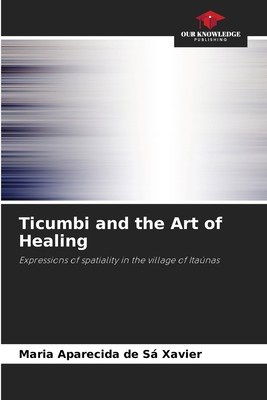
- We will send in 10–14 business days.
- Author: Maria Aparecida de Sá Xavier
- Publisher: Our Knowledge Publishing
- ISBN-10: 6208633656
- ISBN-13: 9786208633653
- Format: 15.2 x 22.9 x 0.8 cm, minkšti viršeliai
- Language: English
- SAVE -10% with code: EXTRA
Reviews
Description
The author invites the reader to get to know, through the eyes of Cultural Geography, the way of life of a traditional community of artisanal fishermen in the village of Itaúnas, located in Conceição da Barra, in the north of the Brazilian state of EspÃÂrito Santo. Ticumbi is a social institution in the village (the largest). In this work we consider socially produced space. In this sense, the ways of spatializing and inhabiting embody an ethos in the territory, making it a place, a dwelling. The landscape reveals a narrative, a cultural identity of its inhabitants. This research is centered on the discussion of five themes that complement each other in a synthesis through a dialectical process: (i) socio-historical-geographical-cultural aspects; (ii) concepts of spatiality, territoriality, place and identity processes in intersubjectivity; (iii) cultural landscape; (iv) networks of affection; and (v) doing with healing knowledge as an expression of spatiality. There are two maps of the lived space experience: a mental map and an interpretive map. Ticumbi is not only a religious expression of the village of Itaúnas, but also a political one.
EXTRA 10 % discount with code: EXTRA
The promotion ends in 24d.05:51:32
The discount code is valid when purchasing from 10 €. Discounts do not stack.
- Author: Maria Aparecida de Sá Xavier
- Publisher: Our Knowledge Publishing
- ISBN-10: 6208633656
- ISBN-13: 9786208633653
- Format: 15.2 x 22.9 x 0.8 cm, minkšti viršeliai
- Language: English English
The author invites the reader to get to know, through the eyes of Cultural Geography, the way of life of a traditional community of artisanal fishermen in the village of Itaúnas, located in Conceição da Barra, in the north of the Brazilian state of EspÃÂrito Santo. Ticumbi is a social institution in the village (the largest). In this work we consider socially produced space. In this sense, the ways of spatializing and inhabiting embody an ethos in the territory, making it a place, a dwelling. The landscape reveals a narrative, a cultural identity of its inhabitants. This research is centered on the discussion of five themes that complement each other in a synthesis through a dialectical process: (i) socio-historical-geographical-cultural aspects; (ii) concepts of spatiality, territoriality, place and identity processes in intersubjectivity; (iii) cultural landscape; (iv) networks of affection; and (v) doing with healing knowledge as an expression of spatiality. There are two maps of the lived space experience: a mental map and an interpretive map. Ticumbi is not only a religious expression of the village of Itaúnas, but also a political one.


Reviews